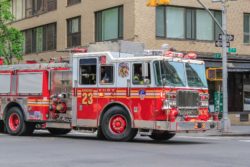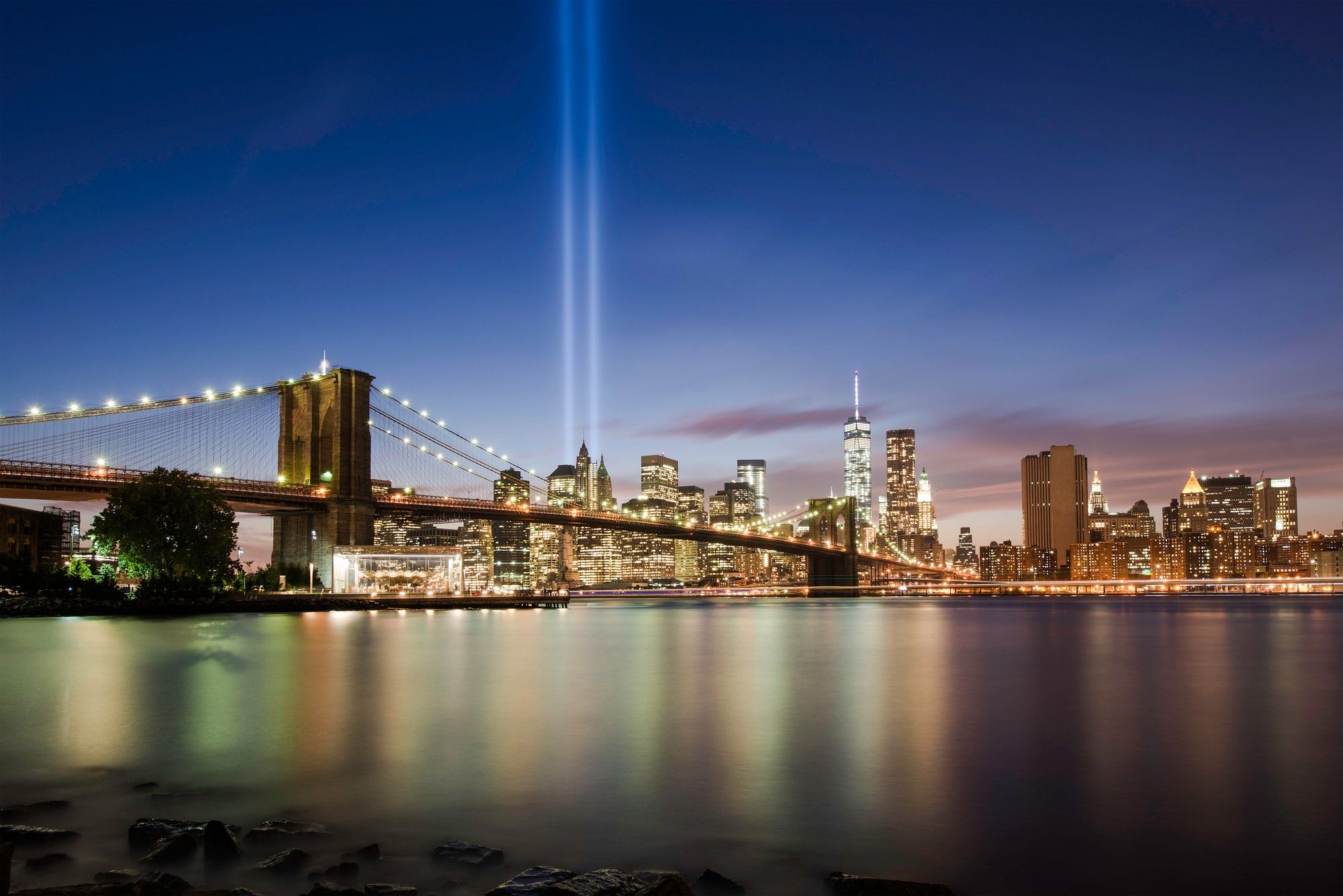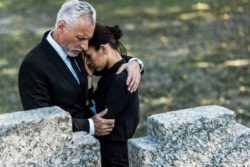Top Class Actions’s website and social media posts use affiliate links. If you make a purchase using such links, we may receive a commission, but it will not result in any additional charges to you. Please review our Affiliate Link Disclosure for more information.
If you were diagnosed with cancer after exposure at Ground Zero between Sept. 11, 2001, and May 31, 2002, you may qualify for monetary compensation from the 9/11 Victim Compensation Fund.
What Exactly Is the Victim Compensation Fund?
In the aftermath of the horrible events of Sept. 11, 2001, a fund was established to help compensate the victims of the attacks and the family members of those who lost their lives. This included those who lived or worked in the area, as well as first responders and anyone else who was present near Ground Zero between the attacks themselves and May 31, 2002.
Billions of dollars have been funneled into the fund, which is good because people continue to die as a result of the 9/11 attacks. While the initial attacks killed nearly 3,000 people and injured more than twice that number, thousands of people are now being diagnosed with a variety of cancers as a result of exposure to toxins at and surrounding Ground Zero in the aftermath of the attacks.
Who Qualifies for the Fund?
Any individual who was injured as a result of exposure to cancer-causing toxins near Ground Zero following the 9/11 terrorist attacks—or the family or representative of someone who died under these circumstances—may qualify for compensation from the fund. Compensation may cover a wide range, including payouts of hundreds of thousands or even millions of dollars.
CNN reports that as of July 31, 2018, more than $4.1 billion in compensation had been distributed. Tens of thousands of people have already been found eligible for compensation, and further claims are still pending. More 9/11 claims continue to be filed, which shouldn’t be surprising since more than one million people were exposed to the deadly toxins in the aftermath and cleanup period after 9/11.
The awards distributed by the fund may range from hundreds of dollars to hundreds of thousands. Compensation for non-economic losses, including pain, suffering, and injuries, may be as high as $340,000.
People with a wide variety of cancer types may be eligible for the fund, including lung, prostate, breast, ovarian, bladder, and stomach cancer, along with dozens of others. Indeed, the total number of cancers connected with exposure at Ground Zero amount to more than 70 different types, according to the Centers for Disease Control. The diagnosis must have been made four years or more after exposure (or, in the case of blood and bone cancers, at least one year after exposure).
How Does the 9 /11 Victims Compensation Fund Bill Provide Protections?
The 9/11 fund provides tax-free financial compensation, which is meant to offer financial reprieve in exchange for pain and suffering, lost earnings, medical expenses, and more. Wrongful death awards are also available through the fund, which goes toward funeral expenses, lost earnings, a large cash death benefit, and additional compensation for surviving family members.
Unfortunately, the Victim Compensation Fund has struggled over the years as it has been depleted and benefits have been cut, and the fund is generally only extended for a few years at a time. However, a recent 9/11 Victims Compensation Fund bill is set to more permanently secure the fund’s future.
9/11 Victims Compensation Bill Overview

The most recent extension to the victim compensation fund was the 9/11 Victims Compensation Fund Bill, which in essence will extend the fund permanently so that it can cover anyone who may have been affected in the 9/11 attacks.
The 9/11 Victims Compensation Fund Bill extended the life of the fund through 2090, and allocated $10.2 billion to the fund over the next ten years, with additional billions allocated for the future. In addition to extending the fund, the new 9/11 Victims Compensation Fund legislation also includes a two-year look back period, during which people who missed the earlier application dates or were denied may be able to reapply for compensation.
Although because of the new 9/11 Victims Compensation Fund legislation there is no longer a hard deadline approaching, it’s best to get the ball rolling as soon as possible for those eligible for the fund to ensure that they receive the compensation they are due.
The extension of the fund until 2090 is meant to provide coverage for every person potentially affected by the toxins released in the 9/11 attacks. Prior to the most recent fund extension, payouts to victims were being slashed to between 30% and 50% of their original estimation due to the fund’s depletion. After this new 9/11 Victims Compensation Fund legislation, payouts will once again be paid at full value to recipients.
What Was the Outcome of the 9/11 Victims Compensation Bill Vote?
The 9 /11 Victims Compensation Bill vote came out at 97–2, reaching final legislative approval before going to the executive branch to be signed. The only senators who voted against the bill were GOP Sens. Rand Paul of Kentucky and Mike Lee of Utah. Lee said his reason for voting against the bill was to ensure that the fund has adequate oversight. Paul noted that his “no” vote was out of concern for the deficit.
“While I support our heroic first responders, I can’t in good conscience vote for legislation which to my dismay remains unfunded,” Paul said. “I will always take a stand against borrowing more money to pay for programs rather than setting priorities and cutting waste.”
The 9 /11 Victims Compensation Bill vote was a long time coming, and advocates had been pushing for the vote for years as the fund had begun depleting. One of the most prominent voices in advocacy for the fund was comedian John Stewart. After the results of the 9 /11 Victims Compensation Bill vote, various lawmakers gave credit to Stewart for his vocal support of the bill in the public eye. Stewart reportedly replied sarcastically, “Yes, I think we can all agree I’m the real hero.”
 Why Was the Fund Extended?
Why Was the Fund Extended?
The Victims’ Compensation Fund was extended past its initial deadline after it was discovered that the effects of the attacks were more severe than previously thought. Due to the long latency period for many cancers and other health conditions related to exposure to toxic dust from the site of the attacks, many people may not realize they have a qualifying diagnosis for years or decades.
This change was made after more and more people were diagnosed with 9/11-related diseases even years after 9/11. Unfortunately, the number of people who are affected only increases. Cancer often takes many years to develop after exposure to a toxin, so as the years since 9/11 wear on, cancer cases are increasing.
A 2011 study showed that people present at or around Ground Zero during the terrorist attacks were more likely than other people to get many different types of cancer because they were exposed to a range of toxins after the terrorist attacks.
People who lived, worked, or went to school near the site of the 9/11 attacks in the time immediately following the disaster may have been exposed to toxic dust or chemicals without being aware of it at the time. People who may have been exposed to these toxins may want to be aware of the potential signs and symptoms of 9/11-related conditions.
The authors of the 2011 study conducted more research recently, indicating that the cancer risk associated with 9/11 toxin exposure may be even more severe than previously thought.
In April of last year, JAMA Oncology published research suggesting that 9/11 first responders are twice as likely to develop myeloma precursor disease than other people. Myeloma precursor disease can lead to multiple myeloma, a type of cancer that causes cancer cells to develop in the bone marrow and effectively crowd out normal healthy blood cells in the body. Myeloma precursor disease is not life-threatening in itself, but can become dangerous if it progresses.
In addition to examining the risks posed to 9/11 survivors, JAMA Oncology predicted that medical costs needed to treat 9/11 first responders’ cancer would be more than $235 million.
How Can You Apply for the Fund?
If you were diagnosed with one of more than 70 types of cancer after exposure to toxins at Ground Zero, you may be eligible for money from the 9/11 Victim Compensation Fund. Forms to qualify for recompense can be complicated and difficult, but consulting an experienced September 11 Compensation Fund attorney can help guide the process.
Navigating the complex and burdensome paperwork to participate in the 9/11 Victim Compensation Fund can be difficult. An experienced 9/11 Victim Fund attorney can help and ensure you get the maximum compensation available.
If you were present near Ground Zero, generally considered to be Lower Manhattan below Canal Street, between September 11, 2001 and May 31, 2002, and were diagnosed with cancer four years or more after exposure (or one year or more for blood and bone cancers), you may qualify for compensation.
Submit your information now for a free, no-obligation review of your potential 9/11 cancer fund claim.
ATTORNEY ADVERTISING
Top Class Actions is a Proud Member of the American Bar Association
LEGAL INFORMATION IS NOT LEGAL ADVICE
Top Class Actions Legal Statement
©2008 – 2024 Top Class Actions® LLC
Various Trademarks held by their respective owners
This website is not intended for viewing or usage by European Union citizens.
Get Help – It’s Free
Free 9/11 Cancer Fund Claim Evaluation
If you qualify, a September 11 Victim Compensation Fund attorney will contact you to discuss the details of your potential claim at no charge to you.
PLEASE NOTE: If you want to participate in this investigation, it is imperative that you reply to the law firm if they call or email you. Failing to do so may result in you not getting signed up as a client or getting you dropped as a client.
Oops! We could not locate your form.


 Why Was the Fund Extended?
Why Was the Fund Extended?










